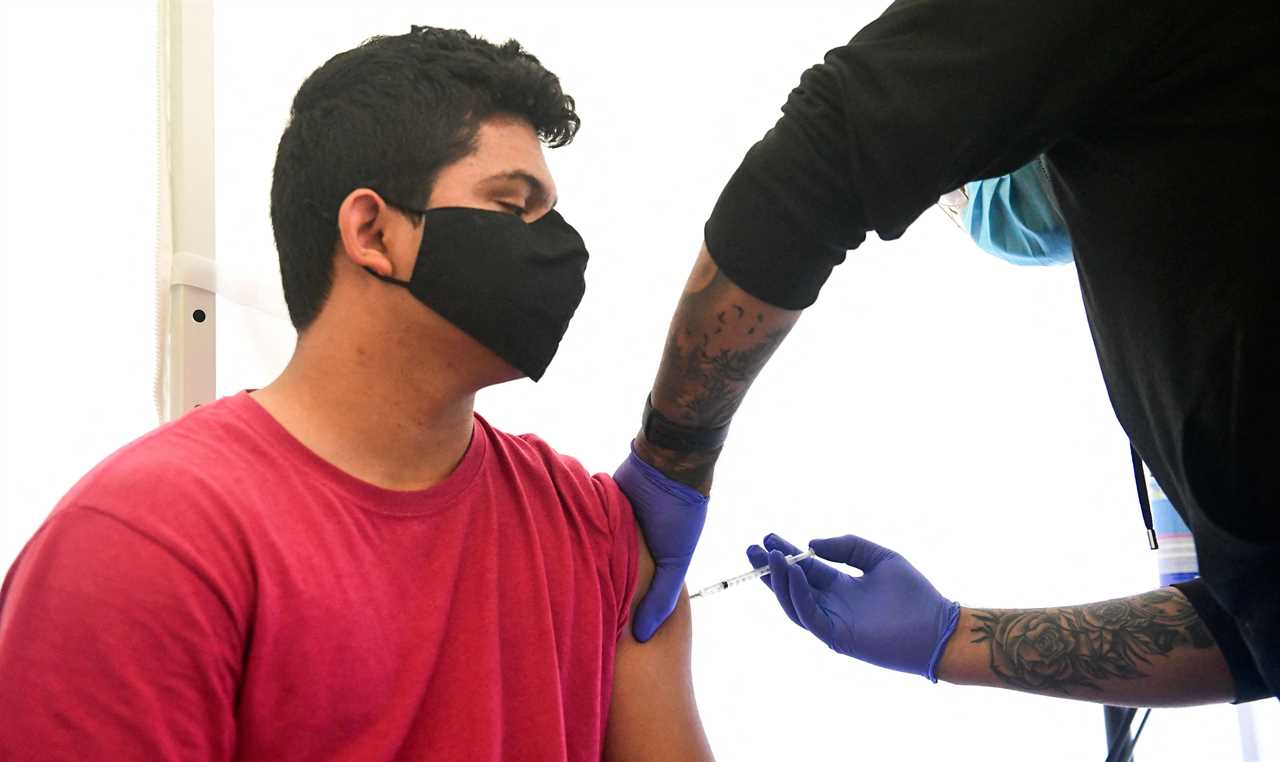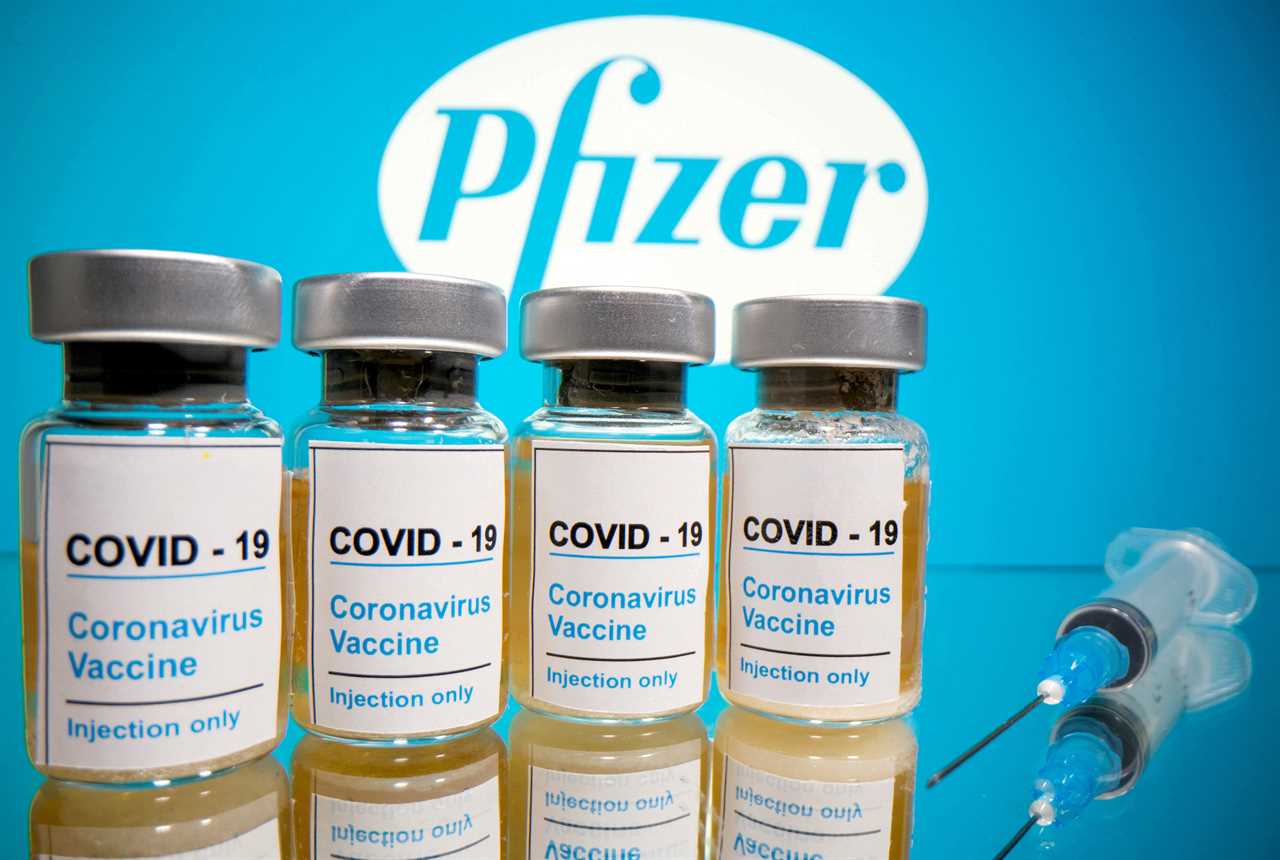PFIZER has asked the UK regulator to approve its Covid vaccine for children aged 12 to 15, it’s reported.
The pharma giant has applied to the Medicines and Healthcare products Regulatory Agency (MHRA) for permission to give the jab to young teens, The Telegraph reports.

Read our coronavirus live blog for the latest updates


If the MHRA fast-tracks the application it could be green-lighted before the end of July.
It comes after a trial of the Pfizer/ BioNTech Covid vaccine showed 100 per cent efficacy in 12-15-year-olds.
Britain secured another 60 million doses of Pfizer’s vaccine last month after an initial order of 40 million was snapped up last year.
A spokesman for Pfizer told The Telegraph: “We can confirm that the companies have submitted a request to the MHRA to expand the use of the Pfizer/BioNTech Covid vaccine in the UK to adolescents.”
VACCINE ROLLOUT
This week, US regulators authorised the Pfizer vaccine for children aged 12 to 15.
The US Food and Drug Administration (FDA) hailed the move as a “significant step”.
Dr Bill Gruber, a senior vice-president of Pfizer and a paediatric doctor in the US, said: “This is a watershed moment in our ability to fight back the Covid-19 pandemic.”
Meanwhile, data from Public Health England this week showed two shots of the Pfizer jab slash the risk of Covid death by 97 per cent.
Pfizer and BioNTech have said they can manufacture up to 2.5 billion vaccine doses in 2021, and produce at least 3 billion doses in 2022.
But Prof Anthony Harnden, a senior vaccine adviser to the government, warned there were “ethical considerations” to vaccinating children.
He told The Telegraph: “The overwhelming majority of children and young people don’t seem to suffer severe effects from Covid.
“Although there is a minority that get very sick, the vast, vast majority don’t.
“Most of the benefits of vaccinating children would be for the protection of the wider community, those unvaccinated adults or those adults for whatever reason who haven’t responded as well.
“You would be vaccinating a group of children essentially to prevent illness in the community, so you’d have to be absolutely sure of the safety of these vaccines in children.
“There are a lot of ethical considerations.”
Unlike the AstraZeneca vaccine, the Pfizer injections have not been linked to very rare cases of blood clots.
But Prof Harnden, who is deputy chairman of the joint committee on vaccination and immunisation (JCVI), added: “You’ve still got safety considerations to look at quite carefully because they [children] can respond differently to different pharmaceutical drug interventions.
“So we can’t be absolutely clear that just because it’s completely safe in adults it will be safe in children. We need to find that out from the data.”
The JCVI, which advises the government on vaccines, will examine the US rollout of the Pfizer jab before deciding if children here should also receive it, he said.






